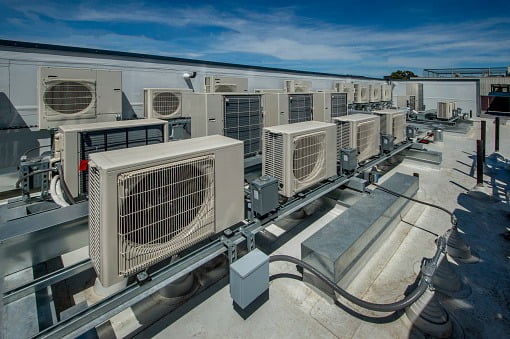Over the past year, the price of natural gas has increased exponentially for a variety of reasons, taking the rest of the energy market with it.
This led to energy bills doubling for some people, with the potential to increase even higher until proposals were announced to try and contain these energy prices.
This has led to increased interest in alternative heating options from a traditional gas or combi boiler, with one of the most popular being switching to a heat pump with the help of a warm air heating engineer, a proposal that has been supported by a subsidised Boiler Upgrade Scheme.
However, to understand whether it is the right decision to switch to a heat pump system, even with a discount of several thousand pounds, it is important to know how a heat pump works, how it is installed and what you need to know before getting one.
- What Is A Heat Pump
A heat pump does not necessarily generate heat, but instead captures or transfers heat from already existing sources, puts it under pressure to increase the temperature and pumps it around inside your home.
It can also work in reverse by capturing heat from inside an inside space and expanding it to reduce the heat.
This is in contrast to a boiler, which uses either burning natural gas, an electrically powered heating element (typically one that uses electrical resistance), or a combination of the two to provide heat that is distributed around a building.
There are two main types of heat pump; the first is an air-source heat pump that takes heat directly from the outside air using an evaporator unit that absorbs heat via a heat exchanger.
The other is a ground-source heat pump that generates heat energy from water in underground pipes that is pumped to an exchanger inside the house and provides heat that way.
- Why Should You Get A Heat Pump
An efficient heat pump does not burn fuel and thus does not emit any carbon dioxide. Moreover, whilst it uses electrical energy to work the pump, it generates far more heat than the electricity used, making it an exceptionally efficient way to run your home.
It also does not use any gas at all, which depending on your energy plan can save you considerable amounts in heating bills. They are not only cheaper to run but cheaper to maintain, with heat pump components lasting longer than conventional boilers, which can lose their efficiency in a decade.
As well as this, they are versatile; heat exchangers work in both directions, warming up a home in winter and cooling it in summer.
- What To Consider Before Getting A Heat Pump
The key consideration and the reason why many people have hesitated on using a heat pump system is cost; even with the £5000 subsidy, they can still cost between £2000 and £15000 to install, and often require larger radiators or an underfloor heating system to be installed to get the biggest benefits.
Certain homes may also not be eligible to use a heat pump, so it is important to look into eligibility and talk to expert engineers before making any decision.

